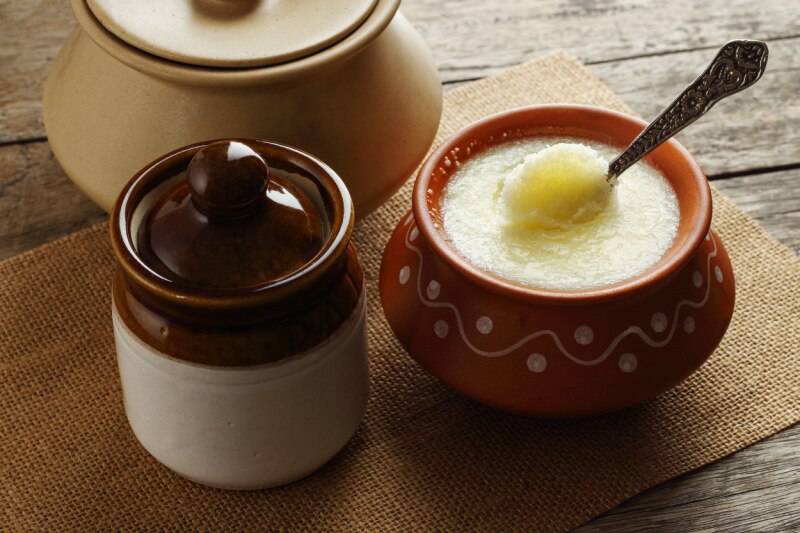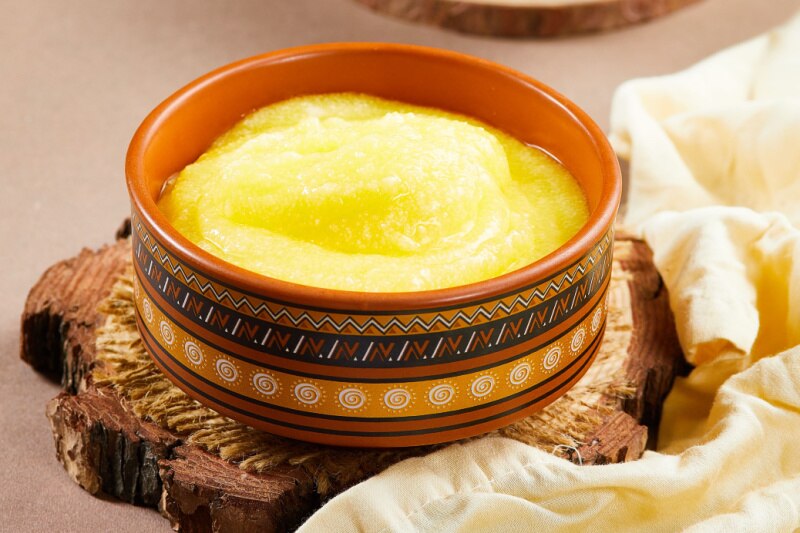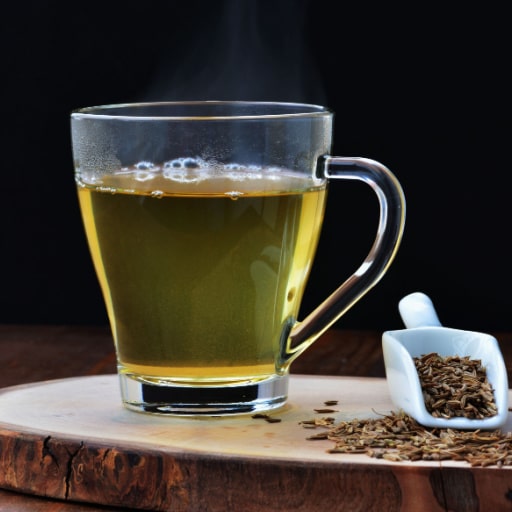Ghee is a common ingredient found in every Indian household. But have you ever wondered which ghee you consume – cow or buffalo ghee? And how does that affect your health? The two might seem similar, but there are noticeable differences between them.
What is ghee?
Ghee is primarily made using the fatty components of cow milk and buffalo milk. To produce ghee, a mixture of milk and butter is carefully processed through a method of simmering and curdling. It can also be created by simply boiling the collected dairy cream. Ghee has a rich history of being used for addressing specific health concerns. Incorporating ghee into a balanced diet can contribute significantly to your overall health, like enhanced digestion, bone health, and nutrient absorption.
Ghee is similar to clarified butter, except it’s slightly more concentrated. It tastes a bit nutty with a caramel-like flavor. In addition, it has a light, grainy texture that almost feels smooth.
Difference between cow ghee and buffalo ghee
When it comes to cow ghee Vs. buffalo ghee, both offer different health benefits, such as:
-
Cow ghee:
- Full of vitamins (A, D, and K), and calcium
- Features antioxidant and anti-inflammatory properties
- The color of cow ghee is yellow
- Has carotene, which changes to vitamin A after digestion
-
Buffalo ghee:
- Loaded with essential nutrients like magnesium, calcium, and phosphorus
- The color of buffalo milk is often white or off-white
- Has a higher fat content and more calories
Their nutritional compositions
 Here is a detailed list of the nutritional compositions of cow and buffalo ghee.
Here is a detailed list of the nutritional compositions of cow and buffalo ghee.
Cow ghee (1 tablespoon)
- Calories: 123 kcal
- Fat: 14 grams
- Saturated fat: 9 grams
Buffalo ghee (1 tablespoon)
- Calories: 44 kcal
- Fat: 5 grams
Which is better?
 Certain factors can help you determine which ghee type suits you better. Here are some of them:
Certain factors can help you determine which ghee type suits you better. Here are some of them:
Milk to ghee ratio
Typically, the ghee made from buffalo milk is more than that of cow milk.
Shelf life
Buffalo ghee has a higher fat content, so it lasts longer, whereas cow ghee has a shorter shelf life.
Fat content
Cow ghee is much lighter than buffalo ghee. If you’re concerned about consuming excess fat, then go for cow ghee.
Digestion
Ghee contains butyric acid, which aids in metabolism. However, cow ghee is much lighter and easier for your gut to digest than buffalo ghee.
Their medicinal value
Here are some common medicinal values of cow ghee:
- Cow ghee is rich in several vitamins (A, D, E, and K) and oxidants associated with a reduced risk of liver diseases, arthritis, and infections.
- Cow ghee is high in monounsaturated omega 3s. These healthy fatty acids promote your heart health. Incorporating it into your daily diet can also reduce your cholesterol levels.
Here are some medicinal values of buffalo ghee:
- Buffalo ghee is rich in CLAs (Conjugated Linoleic Acids) and MCFAs (Medium-Chain Fatty Acids). These compounds help in weight management and enhance your heart health.
- Like cow ghee, buffalo ghee is rich in vitamin A, which is great for maintaining eye and skin health and boosting immunity. Buffalo ghee can also help manage dark circles and reduce chapped lips. The vitamin K in buffalo ghee also strengthens bones.
Consider adding ghee to your daily diet. For instance, mix a teaspoon of ghee into your morning coffee for an energizing kick. Cow ghee can be a better option as it provides a lot of health benefits, including enhanced brain function. In addition, it has much fewer calories than buffalo ghee, making it a healthier alternative.
Key Takeaways
- Cow ghee is rich in vitamins and calcium, while buffalo ghee contains magnesium, phosphorus, and calcium.
- Buffalo ghee has a higher fat content, which allows it to have a longer shelf life, whereas cow ghee typically lasts for a shorter period.
- Additionally, cow ghee is lighter and easier for the digestive system to process compared to buffalo ghee.
Stay tuned to the Activ Living Community. Keep up to date with the latest health tips and trends through expert videos, podcasts, articles, and much more in nutrition, fitness, mindfulness, and lifestyle conditions like Asthma, Blood Pressure, Cholesterol, and Diabetes. Activ Living ke saath sahi sehat ki shuruaat ABHIkaro.
You may also be interested in the following blogs:
- 4 Non-Dairy Milk Substitutes
- From Calcium To Protein: 5 Essential Health Benefits Of Milk You Need To Know
Popular Searches
How to lower blood pressure | Fruits good for liver | Unhealthy foods | Ragi Benefits | Basal Metabolic Rate | Acupressure points for High Blood Pressure | Ayurvedic medicine for blood pressure | How to control cholesterol at home | Homeopathy for Asthma | Biological Age | Home remedies for TB | Natural beta blockers | Negative effects of internet | Types of walking | Blood pressure calculator | Blood sugar calculator | BMI Calculator





 1800-270-7000
1800-270-7000




